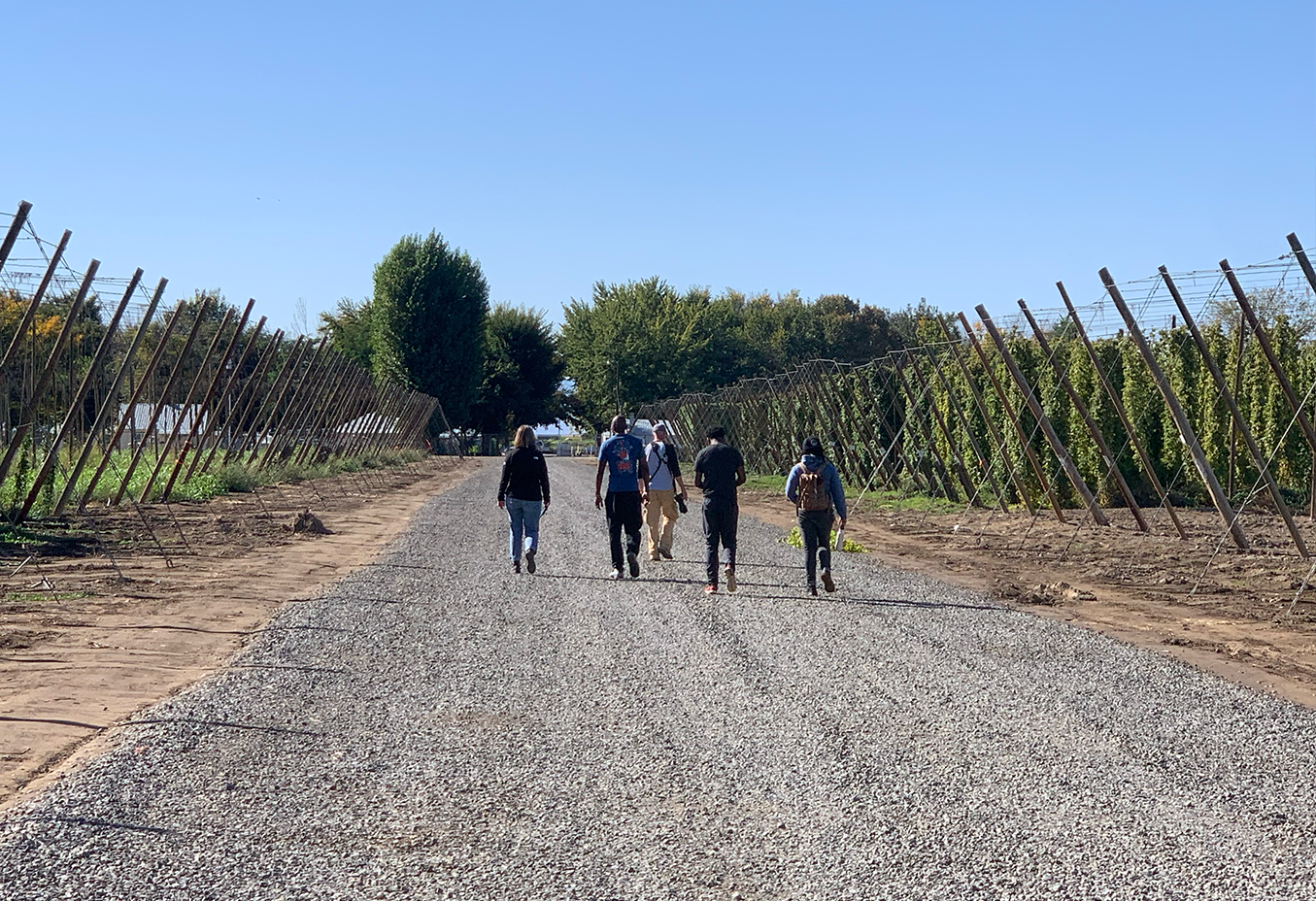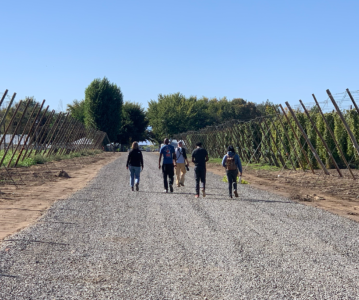Up north, in the Scandinavian-influenced Seattle neighborhood of Ballard, Reuben’s Brews opened in 2012. Its co-founders, husband-and-wife duo Grace Robbings, who is Asian-American, and Adam Robbings, who is British-American named the brewery after their son. Of the 63 breweries in Seattle, Reuben’s Brews is one of five that are women-owned, and it’s one of only 10 women-owned breweries in the state.
Down south, in 2022, CEO and co-founder of Metier Brewing Company Rodney Hines opened a second location in Central District, Seattle’s historically Black neighborhood. This would make Metier one of two Black-owned breweries in Seattle. When considering the wider Washington state, that number blooms to one of three. There are a little over 430 breweries in Washington.
But in between these openings, a pandemic happened. And people had a lot of time to think and drink and make podcasts.
In June of 2020, Black Seattle brewers Annie Johnson (who at the time worked for brewing technology company Picobrew), Larry Rock from Reuben’s Brews, and Hines joined Adam Robbings to talk about their experiences as people of color in the brewing industry. But unlike a lot of podcasts during the heights of the pandemic, the discussion didn’t stop when the mic stopped recording.
“The podcast was the first step towards it,” says Rock.
“It” is the Mosaic State Brewers Collective’s (MSBC) mentorship program. Formed in the summer of 2021, the MSBC’s mission is to inspire and empower underrepresented people to build careers in the beer industry. The collective’s mission is emphasized—and literally italicized on their collective’s website—by their motto: Go Far, Go Together.
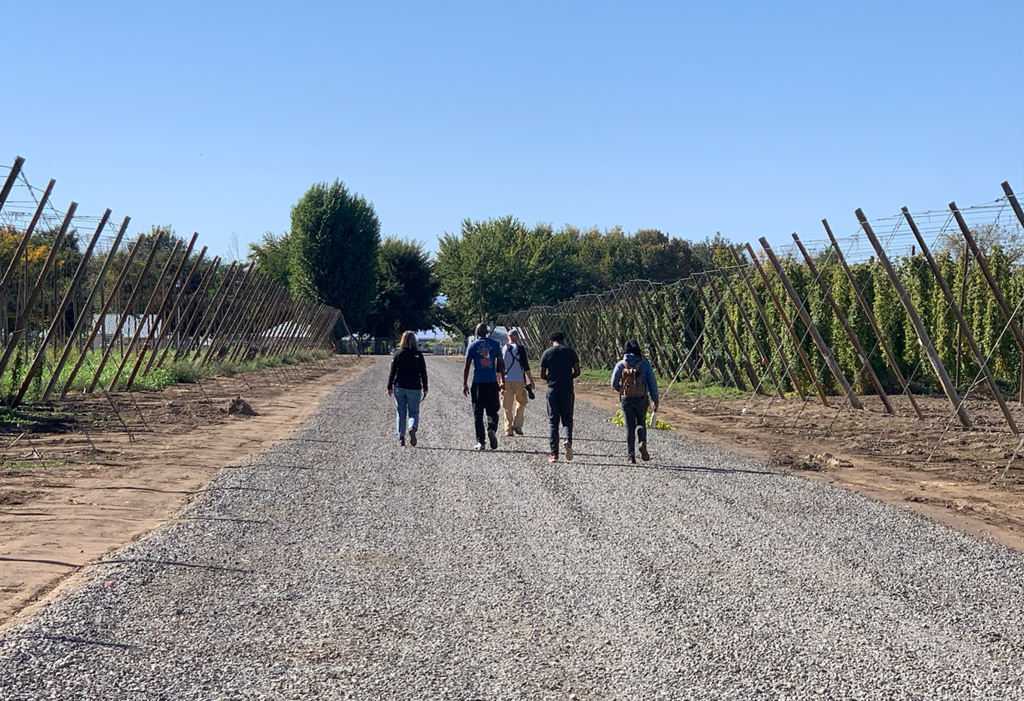
Originally, MSBC’s founders searched fora group that was geared towards increasing diversity in the beer industry, like the Pink Boots Society does for women and nonbinary individuals.
“We looked around and there wasn’t anything there,” says Grace. “So it was ‘What can we do to make an effect locally?’” Before her career in beer, Grace worked as a faculty member at Bellevue College and led the faculty mentoring program, so a mentoring program for beer felt like the natural fit.
Once the idea of a mentorship program was sparked, Ombili IPA, a collaboration beer between Reuben’s Brews and Metier Brewing Company, served as a fundraiser for the collective and helped it pay a stipend to participants. Ombili is a noun from the Oshiwambo word for peace and reconciliation.
“At that time there was a fever pitch of people wanting to support,” says Rock.
Grace and Dreux Dillingham, former general manager at Metier, acted as chairs for the program’s inauguration. With inspiration from the Pink Boots Society and insight from Rock, Hines, and Adam Robbings, they laid out the structure for the mentorship program.
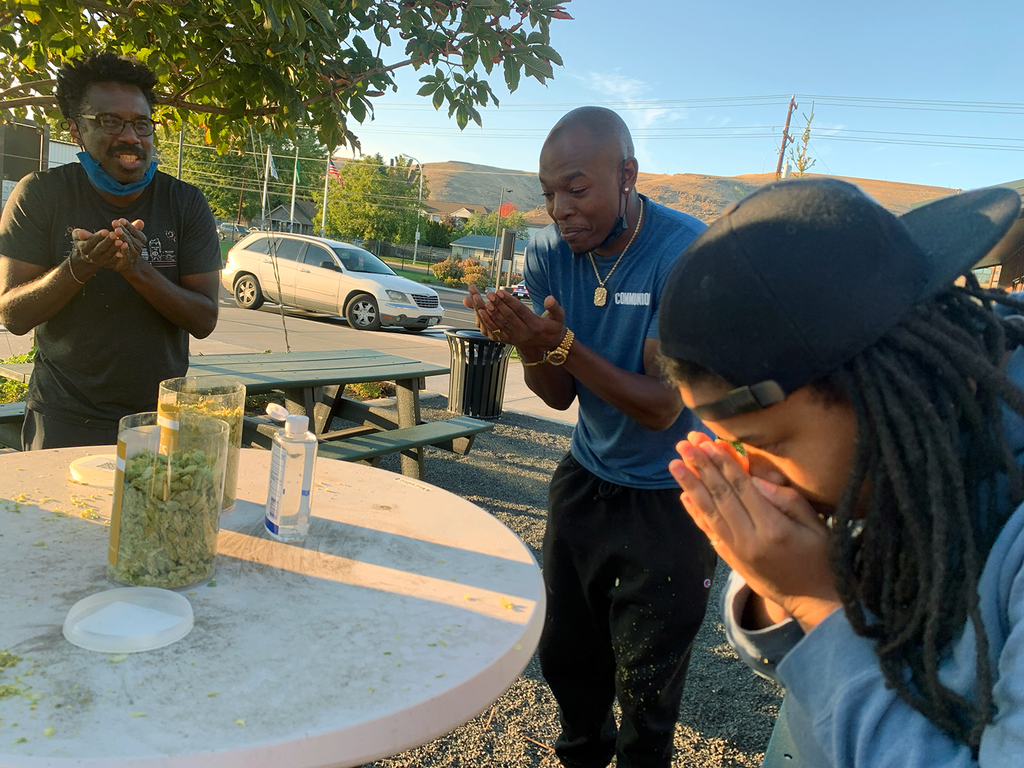
The program is divided into three levels of educational programs:
- Level 1: Do I have a place in this industry? (Making Connections) focuses on networking with industry leaders and veterans in an inviting, explorative space.
- Level 2: Where is my place in this industry? (Hands-on Experience) focuses on rotating sectors of the brewing industry through mentorship—including a day of job shadowing— study, discussion, and hands-on experience.
- Level 3: How can I become a leader in this industry? (Business Skills Development) is a six-week consulting program and six-week management course in partnership with the Consulting and Business Development Center at the University of Washington’s Foster School of Business.
Grace Robbings says the University of Washington partnership has been critical.
“Beer in particular is a passion industry. You get into this because you’re passionate about bringing people together and what you put in the glass. It doesn’t always translate to good business fundamentals,” she says.
The program’s first-person, question-based format is reflective. The questions are always ambitious—already positioning mentees to think of themselves as leaders, which Grace gives Hines credit for.
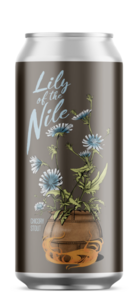
“The ultimate end goal is giving somebody the power to do their own thing,” says Grace.
The program explores a range of brewing business tasks including the art and science of brewing, fermentation in the cellar, packaging, sampling and testing in the laboratory, marketing, sales, service, management, leadership, and the agricultural supply chain.
The first cohort even made their own beer at mentor and former Homebrewer of the Year Annie Johnson’s house. She helped them develop flavor profiles, starting with a chicory brew that became a pilot batch. Mentees talked about what they wanted the beer to taste like, created a brief for a label design, picked the name, and were involved with brewing, packaging, and the lab analysis of the beer. The end result was a chicory molasses stout called Lily of the Nile, which was sold at Metier Brewing Company. “They did their own research. They wanted to brew what they felt was an important style and remain true to Black roots,” says Johnson, explaining that chicory is used in a lot of Indigenous and Black brewing.
Rock drove around with three mentees on a sales call to sell Lily of the Nile; he says it wasn’t hard to sell it. People believed in MSBC’s mission.
“It was cool to see people’s reaction and their willingness to support. That was one of the most rewarding days I’ve had in the industry and I’ve been here for 35 years now.”
The program’s leaders have learned a lot since its start. Level One sometimes works best when mentees can talk to someone one-on-one. And while level two offers a variety of skills, they think it might be too intensive for some participants and it could be more helpful to tailor experiences based on the interests of the mentees. They’ve also realized that they want to tap into existing community resources more, like when they partnered with hops supplier BarthHaas to send a mentee to the company’s hop academy.
The collective is even interested in expanding the mission beyond beer, to anyone interested in the craft beverage industry. They’ve had mentees who were interested in kombucha, wine, and cider. Reynelda Solitaire is one cider-loving mentee, and her interest in cider led her to an experience in a taproom that made her wonder about the lack of diversity in cider.
“As I’m sitting there, I just oddly started to think about the space that I was in and felt isolated,” says Solitaire. “And not just in terms of the environment, but the flavors. I thought, ‘Wouldn’t it be cool if there was a stamp on this that might resonate more with someone that looks like me?’”
Her interests in diversifying the cider industry led her to Metier Brewing Company, which led her to a candid conversation with Hines, which led her to applying for the MSBC mentorship program.
As time passed, the program went from virtual meetings to in-person, hands-on meetings. At one meeting, the program invited Finnriver Farm & Cidery, where Solitaire learned that the cidery representatives are so interested in helping newcomers that they’re willing to help startups develop batch or base ciders to offset the prohibitive costs of starting a manufacturing business. . “If you’re willing to utilize your ingredients and your equipment to help somebody get something off the ground to start, that says a lot about your passion for it and willingness to share with others,” says Solitaire. “And that’s also what the collective is about. It’s ‘How do we help these individuals who really want to get into the industry have the resources and the capacity to do that?’”

Solitaire was paired up with Erem Fesaha, CEO and founder of Boon Boona Roastery & Café, who she says “spoke light into her” and gave her confidence.
“When we were first talking, I said ‘Well I think I might pursue a third-party [contract fermentation service] and I just tell them what I want, they make it, we go from there,’ and he was like, ‘Why? You can make it yourself.’ Just the fact that he shared that and helped me to see that it was possible, that was really important.”
Solitaire enjoys converting people to cider and admires how the industry is pushing ABV levels and experimenting with new flavors. “I hope that through my ability to learn and be a part of this process to one day have my cider business up and running and mentoring those who want to be in that space as well.”
To anyone considering the program, “Do it,” she says. “You don’t have to have a background, all you have to do is want to learn and engage with others on a similar path. It will definitely make an impact on your ability to be successful and realize your vision.” And she says the mentorship program isn’t just a one-time experience. “Once you’re a part of it, you’re in there.”
Ultimately, Grace Robbings and Larry Rock think that the best thing the program can do is bring people together to have conversation and share knowledge.
“The line between mentor and mentee is blurred,” says Grace. “Initially I was like, ‘We have all this knowledge and we can help impart this knowledge on you,’ instead of like ‘Let’s just get us all in the room cause the knowledge is here, we just need to talk to each other.”
When the collective was first launched, the program was responding to a report by the Brewers Association that found:
- 88% of the people who own craft breweries are white
- 4% are American Indian or Alaska Native
- 2% are Asian
- 2% are Hispanic
- 1% are Black
Diversifying the beer industry is a longstanding goal, but organizers believe in keeping the momentum going even as we get further away from the collaborative, engaged spirit of the George Floyd protests and the stillness of the pandemic.
Grace Robbings and Rock agree that to know the true success of the program, you’d have to look five years into the future. Still, they’re celebrating small successes along the way.
“To me success is just creating a community where people have space to find support in each other,” says Grace. “It’s been so fun seeing people where they are and where they want to go and being a part of the journey.”
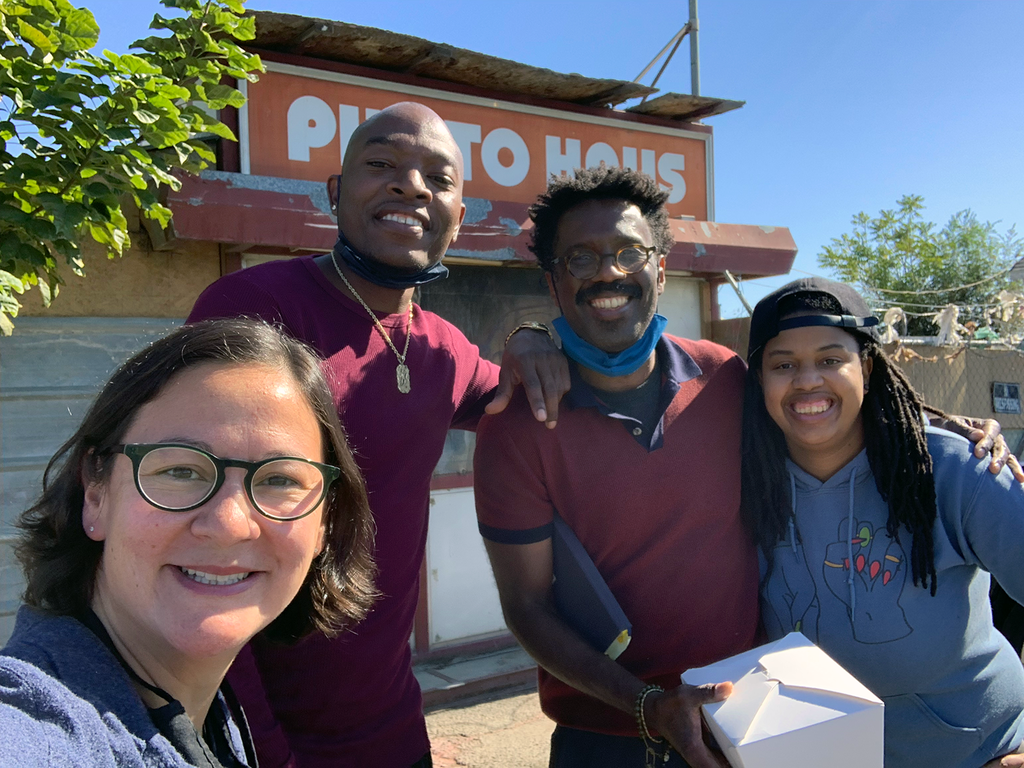
Both constantly shout out others in the local Seattle beer community. (Grace frequently touts Rock’s skills, referring to him as a living legend.) They discuss the progress of mentees and make note of what they need to consider for the next cohort. They also commiserate on their experiences of outperforming as minorities in the industry.
“As a woman in the beer industry, as a person of color in the beer industry, you have to be better than everyone else. Being average is not good enough,” says Grace.
“Not an option. Not an option…” Larry repeats.
Reuben’s Brews is filled with community and connections. A father drinks a fresh glass of beer while his daughter holds her own Martinelli’s apple juice. There’s an upcoming trivia night and posters advertise a field trip to hop-growing farms. It’s interesting to think about what this space could look like in five years with people like Grace and Larry committed to diversifying it.
“When I look back at the times I’ve regretted something, it’s mostly inaction, not action. I don’t want that regret. If I can do something, I want to do it,” Grace said. “I understand the otherness of this industry and I don’t think it needs to be that way. Beer is the ultimate tool to bring people together. There’s no two ways about it.”

